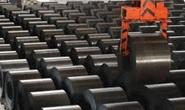Government/Policy

March 27, 2018
South Korea Concedes, Avoids Tariffs
Written by Sandy Williams
The U.S. and South Korea have reached an agreement on amendments to the KORUS agreement. In return for exemption from Section 232 tariffs, Korea will reduce its steel exports to the U.S. by 30 percent to 2.68 million tons annually.
In addition, Korea agreed to increase automotive imports from the U.S. to 50,000 vehicles per U.S. manufacturer from the 25,000 vehicles currently permitted. The imports will meet U.S. safety standards, and not necessarily Korea’s stricter environmental and safety standards.
Another change may quash plans by Korean auto manufacturer Hyundai to introduce a truck model in the U.S. South Korea has agreed to a 20-year extension of the phase out of a 25 percent tariff on trucks. Under the existing agreement, the tariff would have ended in three years; the new agreement will extend the termination of the tariff until 2041.
Treasury Secretary Steve Mnuchin said the strategy of using the tariffs as leverage in the negotiations worked, calling it an “absolute win-win.”
South Korea remained firm on its agricultural tariffs. Korea’s trade minister Kim Hyun-chong stressed during a press conference that “there will be no further opening of agricultural markets and no changes to the tariffs that had already been lifted.”
The deal was viewed as the best that South Korea could hope for, but more trade pressure is likely from the Trump administration.
“If President Trump becomes a two-term president … I believe there will be continuous (trade) risks during that time,” Trade Minister Kim said.
“This leaves a bad precedent of exchanging steel tariffs – which is a breach of international trade law – for a legitimate free trade agreement, in negotiations,” said Wonmog Choi, professor of law at Ewha Womans University, in a comment to Reuters.







